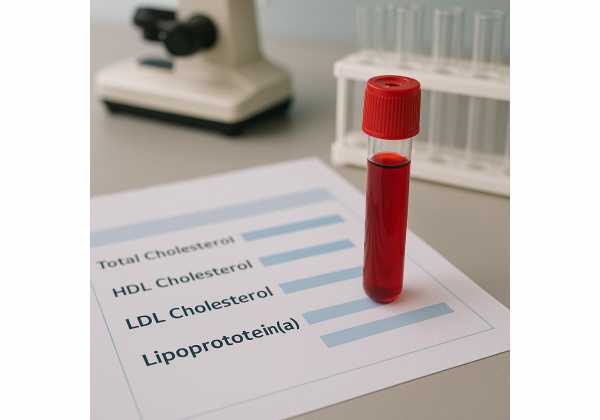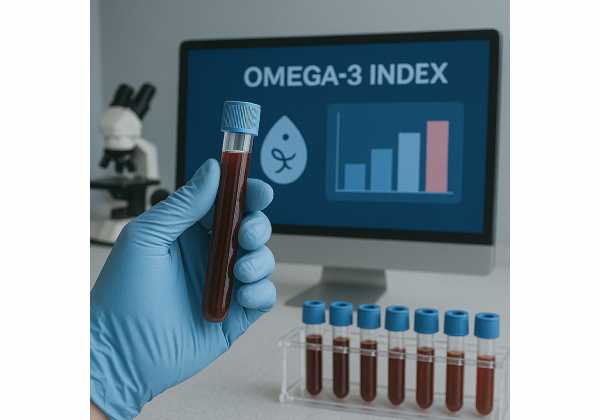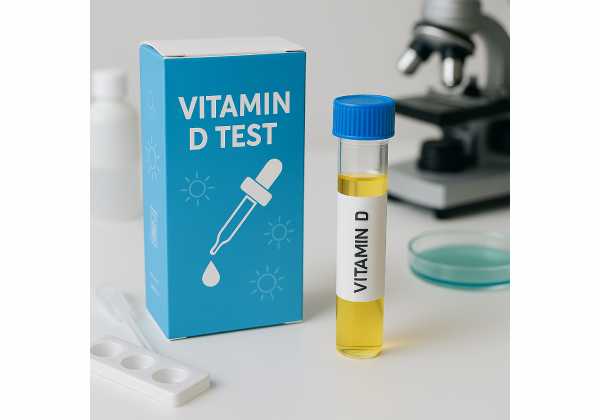Iron and Ferritin: Interpreting the Panel Without Overdoing It
Iron tests sit at the crossroads of energy, cognition, immunity, and cardiovascular health. Yet the panel is often misread or overtreated. Ferritin, serum iron, transferrin (or TIBC), and transferrin saturation work best when interpreted together and in context—symptoms, inflammation, and potential sources of blood loss. This guide shows you how to read the core tests, avoid common pitfalls, and...
Kidney Health in Healthy Aging: eGFR and Albumin-to-Creatinine Ratio
Kidney health quietly shapes longevity. Most early kidney changes cause no pain, yet they influence blood pressure, cardiovascular risk, medication safety, and how resilient you feel under stress. Two tests do most of the heavy lifting: estimated glomerular filtration rate (eGFR), which reflects filtration capacity, and the urine albumin-to-creatinine ratio (ACR), which signals vascular and glomerular stress. Used together—over...
Lipids for Longevity: ApoB and Non-HDL as Primary Markers
A longer healthspan depends on managing the drivers of cardiovascular disease early and well. Among the most powerful levers is understanding your lipid profile—beyond the familiar LDL cholesterol. Apolipoprotein B (ApoB) and non–HDL cholesterol capture the total number of atherogenic particles that injure artery walls over time. They align more closely with risk than LDL-C alone and help guide...
Lipoprotein(a) and Longevity: Who Should Test and What Levels Mean
Lipoprotein(a), or Lp(a), is a cholesterol-carrying particle with a unique protein “tail” called apolipoprotein(a). Unlike standard lipids, your Lp(a) level is set mostly by genetics and changes little across adulthood. That makes it a powerful lifelong signal about cardiovascular risk and healthy lifespan—if you measure it. Yet many people who would benefit from Lp(a) testing have never had it...
Microbiome Testing for Longevity: When It Helps and When to Skip
The gut microbiome is tightly linked to diet, medication use, metabolic health, and aging biology—but that does not mean every stool test offers clear, actionable guidance. Microbiome testing spans very different technologies, each with strengths and limits. The promises can sound compelling; the practical utility for most healthy adults is narrower. In this guide, you’ll learn what each test...
NAFLD Screening for Longevity: ALT, AST, FIB-4, and Ultrasound
Nonalcoholic fatty liver disease—now widely termed metabolic dysfunction–associated steatotic liver disease (MASLD)—is common, quiet, and tightly linked to cardiometabolic health. Most people never feel liver symptoms until late. That is why screening for fibrosis risk, not just fat in the liver, matters for longevity planning. A practical, stepwise approach—starting with simple blood tests and moving to noninvasive imaging when...
OGTT vs Mixed-Meal Test: Choosing a Glucose Challenge
Glucose challenges help answer a practical question: how does your body handle a sugar surge in real life? The oral glucose tolerance test (OGTT) is standardized and focused; the mixed-meal tolerance test (MMTT) is closer to an actual meal. Both can reveal early metabolic shifts long before routine labs flag trouble. In this guide, you will learn what each...
Omega 3 Index for Longevity: Testing and Targets
A high-functioning longevity plan looks beyond total cholesterol and basic fish-oil advice. The omega-3 index—EPA plus DHA measured in red blood cells—offers a direct, biologically grounded view of long-chain omega-3 status over the last few months. It tracks how consistently you eat fatty fish or take EPA/DHA supplements and whether those inputs actually reach tissues. Used well, it can...
Resting Heart Rate and HRV for Healthy Aging: What to Track
A long healthspan depends on daily choices that compound over years. Two metrics can help you steer: resting heart rate (RHR), the number of beats per minute when you are truly at rest, and heart rate variability (HRV), the beat-to-beat variation that reflects your nervous system’s balance. Both respond to sleep, training, illness, alcohol, and stress—often before you feel...
Sleep and Wearables for Longevity: What to Trust and What to Ignore
Modern wearables promise lab-like sleep insights from your wrist, finger, or mattress. They are useful—but imperfect—tools. Understanding what these devices actually sense (movement, heart rhythm, skin temperature) and how algorithms translate signals into sleep estimates can help you focus on metrics that matter for healthspan. In this guide, you will learn which numbers to trust, how to collect cleaner...
Thyroid Checkpoints for Longevity: TSH, Free T4/T3, and Patterns
A healthy thyroid supports energy, mood, metabolic rate, bone health, and cardiovascular resilience across the lifespan. Yet thyroid issues often unfold quietly and are easy to miss until they affect daily function. This guide translates thyroid testing into practical steps you can use with your clinician. We focus on when to test, how to interpret common patterns, what can...
Triglycerides to HDL Ratio: Simple Signal for Metabolic Healthspan
The triglyceride to HDL cholesterol (TG:HDL) ratio turns two familiar lipid numbers into a compact snapshot of metabolic status. Because triglycerides reflect how the body handles dietary fat and hepatic output, while HDL participates in reverse cholesterol transport, the ratio captures the push–pull between fat storage and lipid clearance. Lower is generally better. You can calculate it yourself, track...
Uric Acid and Longevity: When Numbers Matter
Well-chosen numbers make prevention practical. Serum uric acid is one of those numbers: easy to measure, biologically meaningful, and linked to crystal disease (gout and uric acid stones) and broader metabolic risk. Yet it is also misunderstood. People focus on a single cutoff while overlooking context—kidney function, medications, and the pattern of flares. This guide clarifies what uric acid...
Vitamin D Status in Healthy Aging: How to Test and Interpret
Vitamin D sits at the intersection of bone strength, muscle performance, and long-term independence. Yet many people still wonder what to test, how to time it, and when a number is meaningful. This guide focuses on the practical details that matter in everyday care. You will find clear steps for ordering the right test, converting units, interpreting results alongside...
Waist to Height Ratio and Waist Circumference: Simple At Home Metrics
A tape measure and a few minutes are enough to track two of the most useful markers of central fat: waist circumference and waist-to-height ratio (WHtR). These at-home checks don’t replace a clinician’s evaluation, but they do signal trends that map closely to metabolic and cardiovascular risk. This guide shows you how to measure your waist correctly, interpret your...
Galactomannan: Evidence-Based Uses for Blood Sugar, Cholesterol, Gut Health, and Side Effects
Galactomannan is a family of soluble fibers found in several edible gums—most notably guar gum, fenugreek gum, and locust bean (carob) gum. In foods, it thickens and stabilizes. In supplements, it behaves like a gentle prebiotic: it swells with water, increases viscosity in the gut, slows carbohydrate absorption, and feeds beneficial microbes that make short-chain fatty acids. These actions...




















